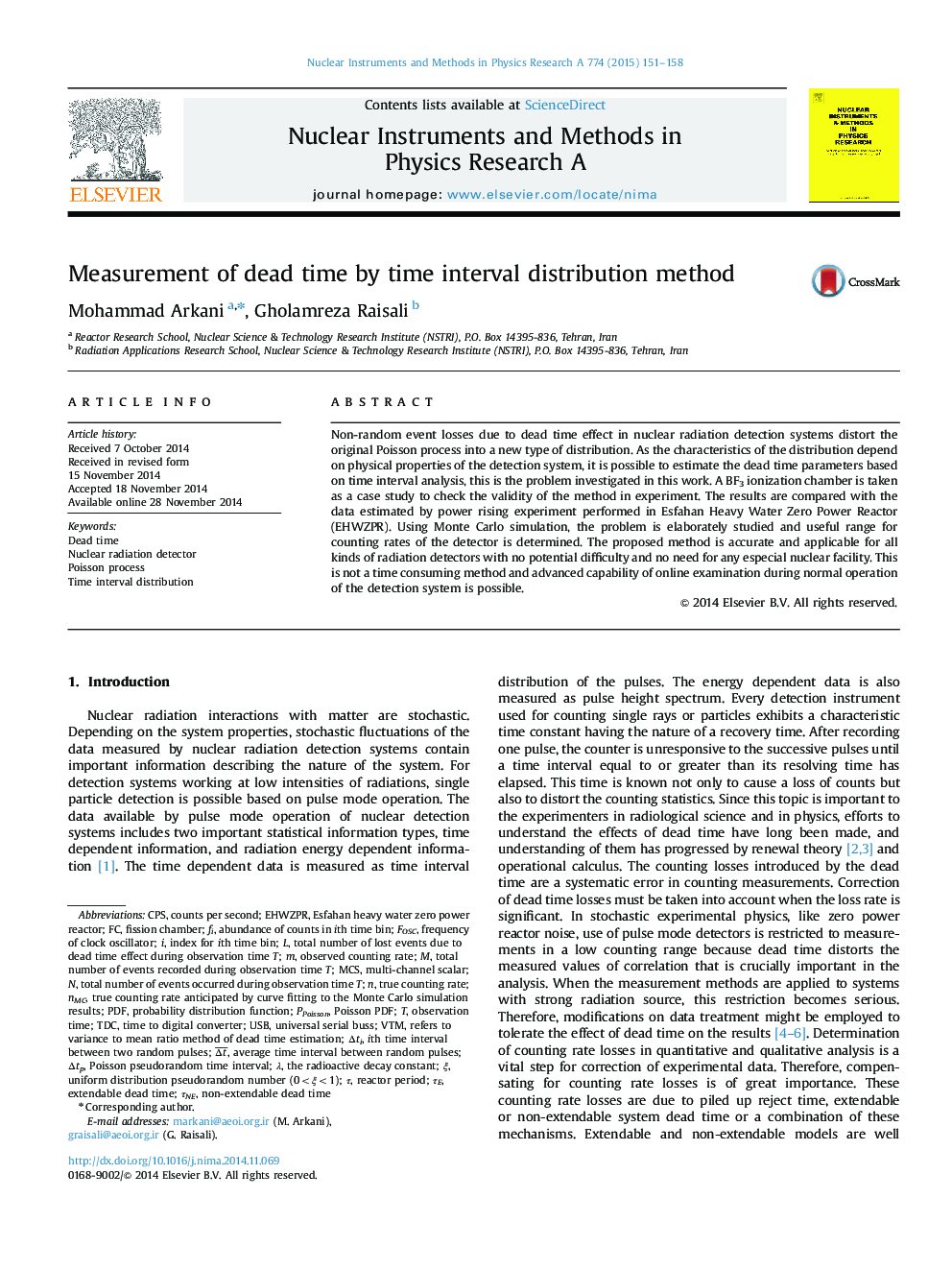| Article ID | Journal | Published Year | Pages | File Type |
|---|---|---|---|---|
| 8174364 | Nuclear Instruments and Methods in Physics Research Section A: Accelerators, Spectrometers, Detectors and Associated Equipment | 2015 | 8 Pages |
Abstract
Non-random event losses due to dead time effect in nuclear radiation detection systems distort the original Poisson process into a new type of distribution. As the characteristics of the distribution depend on physical properties of the detection system, it is possible to estimate the dead time parameters based on time interval analysis, this is the problem investigated in this work. A BF3 ionization chamber is taken as a case study to check the validity of the method in experiment. The results are compared with the data estimated by power rising experiment performed in Esfahan Heavy Water Zero Power Reactor (EHWZPR). Using Monte Carlo simulation, the problem is elaborately studied and useful range for counting rates of the detector is determined. The proposed method is accurate and applicable for all kinds of radiation detectors with no potential difficulty and no need for any especial nuclear facility. This is not a time consuming method and advanced capability of online examination during normal operation of the detection system is possible.
Keywords
Related Topics
Physical Sciences and Engineering
Physics and Astronomy
Instrumentation
Authors
Mohammad Arkani, Gholamreza Raisali,
